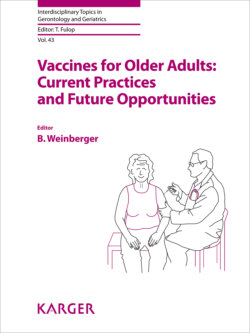Читать книгу Vaccines for Older Adults: Current Practices and Future Opportunities - Группа авторов - Страница 18
На сайте Литреса книга снята с продажи.
Influence of Tissue Milieu on Innate Immune Cell Function
ОглавлениеMuch of what is known about innate immune cell functional changes during aging has been elucidated in vitro in cells isolated from peripheral blood and do not reflect tissue milieu. Mounting a functional immune response depends not only on intrinsic responses by innate immune cells, but also their ability to communicate with the neighboring cells around them. Animal models and studies of ex vivo human tissues have provided some insights into how the tissue microenvironment significantly shapes the function and identity of its resident immune cells [37, 47–49]. Rodent studies utilizing heterochronic parabiosis, the surgical joining of a young and old animal in which a shared circulatory system develops, have revealed environmental defects in the aged animal that can be improved by exposure to circulating factors from the young animal [50]. Similarly, adoptive cell transfers of adult or old cells into reciprocally aged hosts reveal that the aged environment impairs functional responses of innate immune cells [36, 51, 52]. Although these experimental techniques are limited to inbred animal models, innovative studies in lung transplant patients have recently been used to study tissue-resident T cells in humans [53]. In the following sections, we describe selected tissues that exhibit strong age-related alterations and discuss how these might impact innate immunity and vaccine efficacy.
